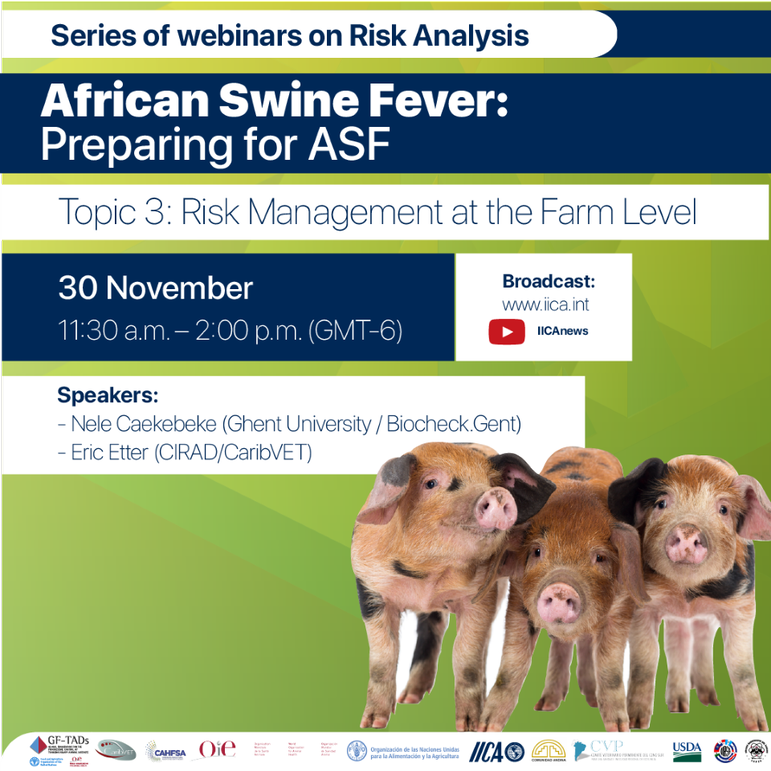
Webinar 3 in the risk management series. Discussions are held on how to apply risk pathways on farms the Biocheck tool in the field. There is also a practical demonstration of the use of the Boehringer tool, ASF Combat, available on the internet. These tools help determine potential ASF introduction risks and permit some improvements to be made. However, they do not replace a specific biosecurity assessment or the advice of veterinarians and other experts.
Nele Caekebeke: Graduated in 2016 as veterinarian with science major from the School of Veterinary Medicine at the University of Ghent, Belgium. She completed her doctorate in 2021 and specialized in the reduction of antimicrobials in livestock through management and biosecurity interventions. Nele is a member of the local ethics committee of the School of Veterinary Medicine, and a member of the board of the Association of Veterinary Economics and Epidemiology. Nele has also provided information on biosecurity since 2018, and since 2021 has been part of Biocheck Ghent, a spin-off company of the University of Ghent.
Eric Etter: Veterinary epidemiologist employed by CIRAD, currently secretary of CaribVET based in Guadeloupe in the Caribbean. He has been named “extraordinary professor” in the Department of Production Animal Studies of the School of Veterinary Sciences of the University of Pretoria, South Africa. Professor Etter is an internationally renowned risk analysis expert. He has published over 60 articles in international peer-reviewed journals and under his supervision or co-supervision five doctorate students and fifteen master’s students have graduated. Currently he is supervising and co-supervising six doctorate students and two master’s students. His research has focused on different diseases, including vector-borne diseases such as bluetongue, Rift Valley fever, and zoonotic diseases such as brucellosis, and diseases with major economic consequences that affect both farmers and whole countries due to export bans. His role is to assess classical and innovative methods to determine risk factors in order to propose improvements and more profitable strategies to control these diseases. His research has included social science approaches in the understanding of surveillance and control of mandatory declaration diseases.



